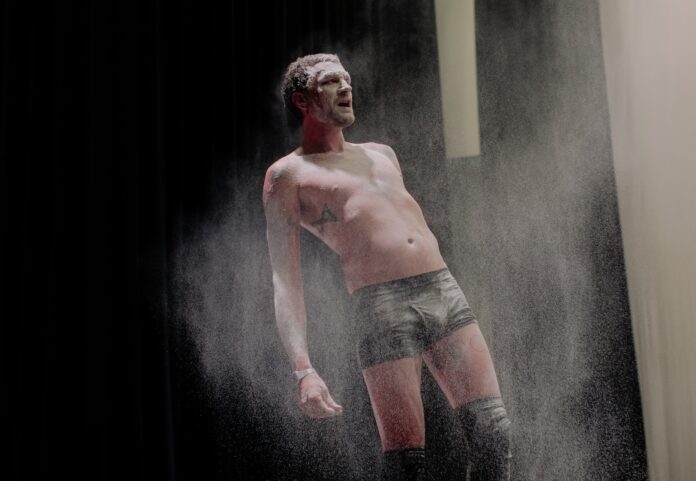When I saw the title of Alley Wilde’s latest multimedia creation, The Axe: a long line of broken white people (Thu/11 and Sat/13 as part of Counterpulse’s Groundwork Festival), I was simultaneously and intensely intrigued and suspicious. As the bi-racial daughter of a Chinese immigrant, I have an intricate and complex relationship with many white people. I decided that it was all the more reason to take a deep dive into this show.
In a nearly-empty Café La Bohème in the Mission district, Wilde and I sat across from each other and engaged in a revelatory conversation about The Axe. Wilde is, according to the performance’s press release, “a white, not-disabled, queer, non-binary person with access to male privilege and U.S. citizenship” who uses they/them pronouns.
“For myself, as a person who grew up in a very conservative area with a conservative family,” they explain, “ just my process of education through school, political organizing, doing anti-racist workshops and similar experiences [made me different]. Having learned a lot more about white history, colonial history, the history of enslavement, I was really landing in a mentality and an attitude of ‘fuck my ancestors, fuck my people,’ really disavowing them in all the ways that I could. I see it as being the cancel-culture approach to ancestor work.
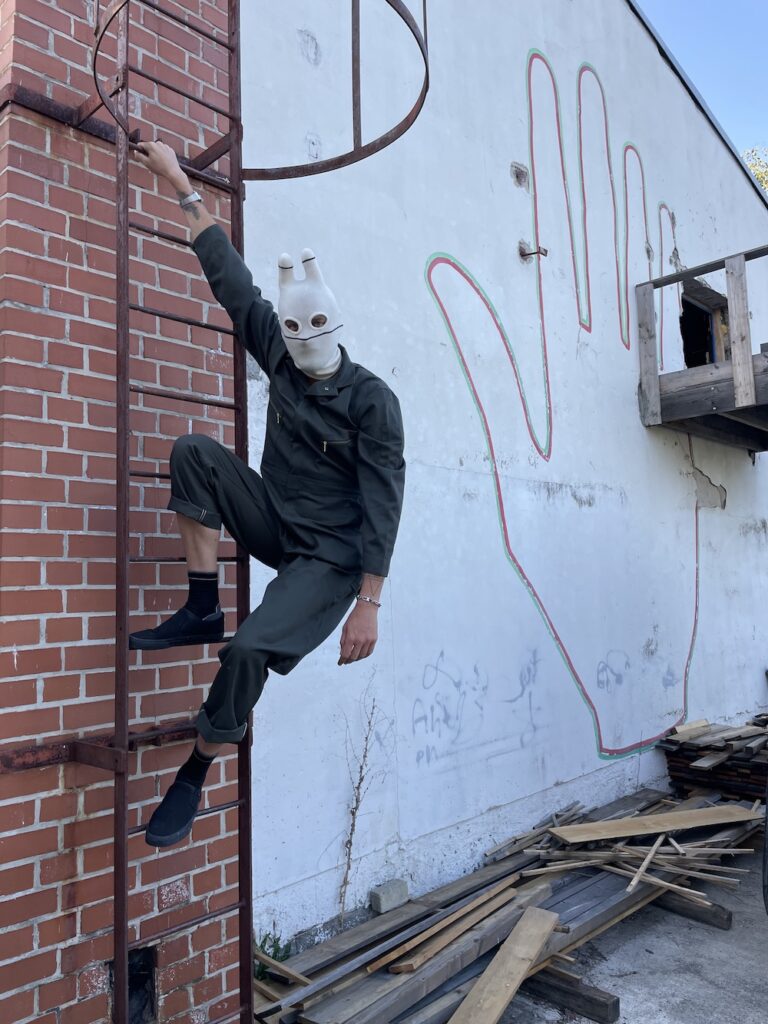
“We need to distance ourselves and look at the broader thread of our ancestry,” they continue. “I came to understand that not everyone in my bloodline are inherently evil people. I took this course with Comrades Education (formerly White Awake) called Ancestral Recovery for Collective Liberation. One of the first steps in this process was Lyla June. I was actually reading one of her pieces when you arrived. She’s someone who grew up Native [American], but is mixed Native and White European and was told she was just Native.”
June had the experience of going to Europe and discovering the history of Indigenous Europeans, which included the spread of empire and power, causing the destruction of communal lands and community systems, the theft of land, and the imposition of private property.
Wilde explains, “Looking back at these events, I see that some of my ancestors chose to be part of the project of empire, but a lot of my ancestors were forced into that project or were killed. Julius Caesar was developing the concept of divide and rule when he was conquering pagan tribes. You see that play out in innumerable conflicts over the centuries and today.
“Tapping into with these aspects of European history is just so important for me to reconcile my own lineage,” they say. “Lyla June has this quote, and it’s in my description for the piece: ‘Europeans slaughtered their healers and then exported their trauma.’
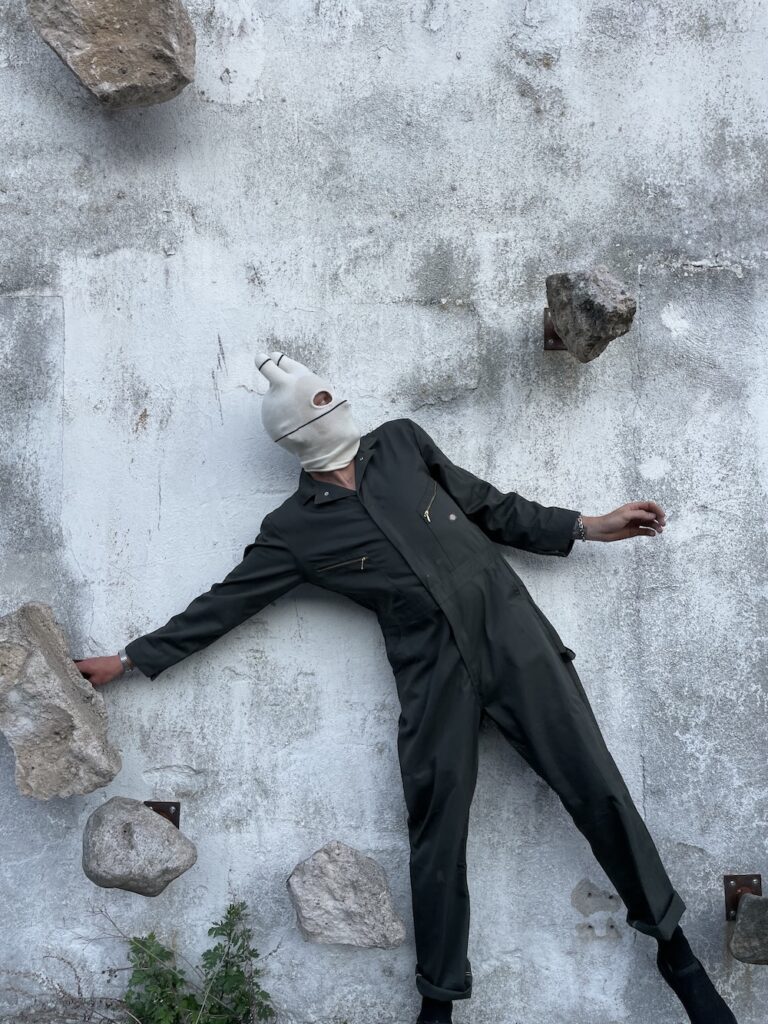
“The title for the piece came up around my grandma’s 90th birthday, which was the moment when more of my family was together than had been the case for a long time. Some of my family members are the most conservative, the most racist, the most fucked-up people. If I think about what is healing for myself or what intergenerational trauma would look like, these kinds of things are part of my performance piece. I talk about my grandfather who fought in the Korean War. He came back incredibly traumatized and died young as a result of his addictions.”
“Another big point of influence is artist Angelique Wilkes,” they say. “She’s Jamaican and lives in Canada. I did a workshop with her, and she had us do what she called a land acknowledgement for our body.”
This entailed a land acknowledgement for the land, involving mapping out where different peoples lived and when, and what they doing in all those places.
“Now,” says Wilde, “we can do this same kind of process for our body in the place we are in, and the time we are in. If I’m actually doing a land acknowledgement for my body, I’m looking through into deeper time, beyond the last couple hundred years. I come from land-based, culturally connected pagan villagers who were from Norway, broadly Eastern Europe, Germany, and England.
“Why did I grow up not knowing any plant knowledge? Why did I grow up not knowing, especially as someone who’s Norwegian, that most of the days of the week are named after Norse gods? Or learning about the pagan tradition of winter solstice, and the Yule log and its relationship to Christmas trees? I grew up doing a Christmas ritual that is tied to a pagan ritual, that is connected to my people, and I had absolutely no idea,” they say.
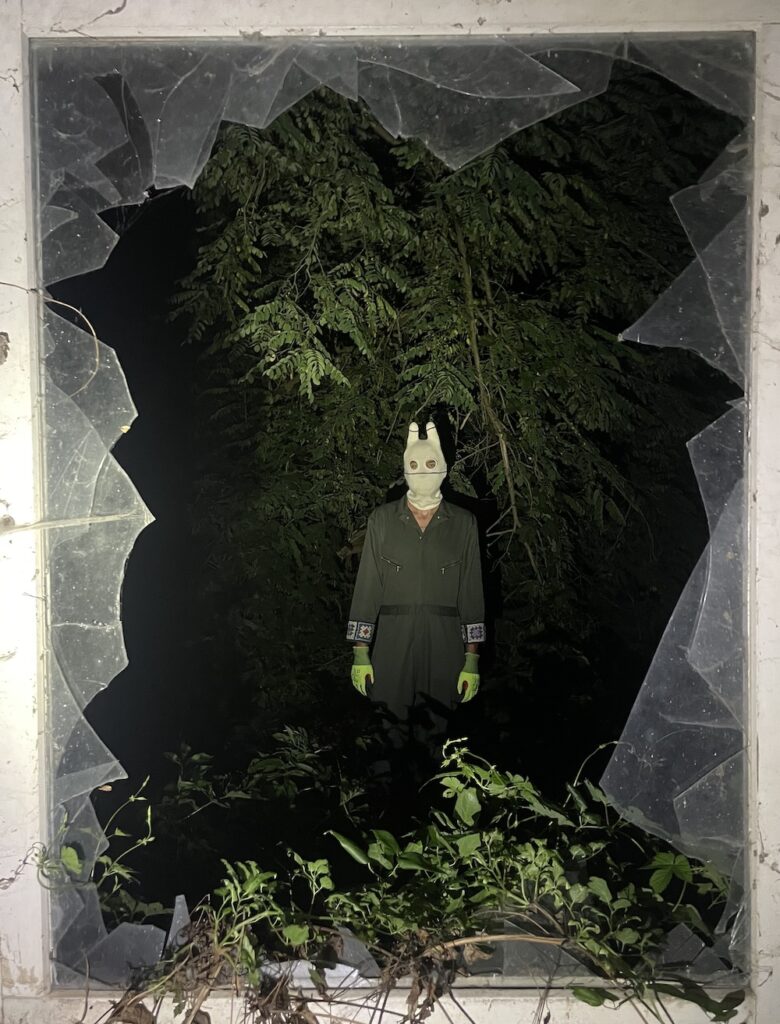
Wilde identifies as a witch, and drew on the pagan traditions connected to their lineage and ancestry for The Axe, including its costumes, props, and masks.
“Another part has been doing European folk dances,” Wilde reveals. “One that’s in the piece is a Norwegian folk dance called the Halling. A lot of folk dances are done in large groups, or in a pair, and it’s usually a male-female pair. The Halling is actually a solo dance, with a couple core elements, but you improvise in connecting those. There’s also something about learning my ancestors’ folk dances through YouTube that feels like a very great metaphor for the disconnection.
“I am already a research nerd, but I’ve gone crazy for this piece. I wrote a 14-and-a-half-minute-long text, where I’m trying to chart some of the things that we’ve been talking about and trying to do a poetic chronicling my own journey. Talking about everything from Bacon’s Rebellion to Spartacus, to the witch burnings, to Henry Ford’s English School, where the immigrant workers could learn English and take civics classes in preparation for becoming U.S. citizens. At the graduation ceremony, students wearing clothing from their native countries walked into a huge ‘American Melting Pot’ and emerged wearing identical suits and waving American flags. It’s really been very much solo project, doing the costumes, the props, the writing, the choreography. There are other ways I’m incorporating material that I won’t share because it’ll reveal secrets.”
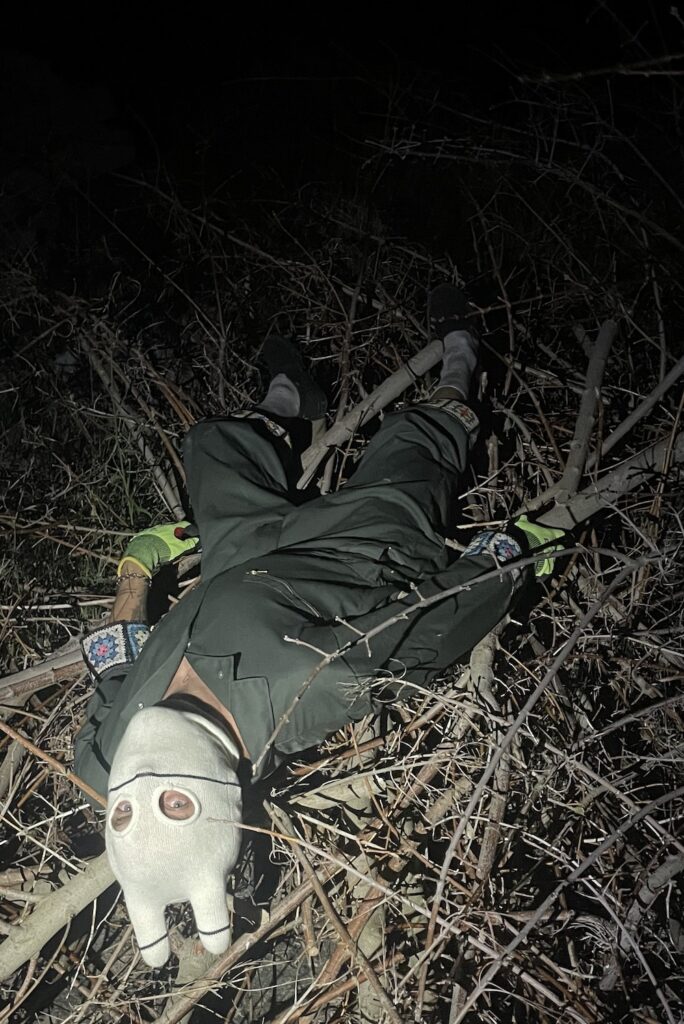
Wilde applied for grants to fund the work and was hoping to get funding to bring other people on board, but all of the grants were rejected. “For foundations and groups that are private, and are continuing to focus on DEI efforts, I don’t think that this work is at the top of the list of what they’re wanting to fund,” they say. “There is a risk to being a white artist and addressing subjects of whiteness. I think if we’re not pursuing a deep sense of understanding and pursuing a path of healing, white people will remain in this profoundly wounded state.
“I’ve even seen this in white anti-racist spaces, and I’ve been guilty of this: white folks trying to prove that they’re the best white anti-racist. Actually this entire idea of trying to prove you’re the best and win the competition is, in and of itself, a cultural framework of whiteness.
“I really don’t I don’t blame anyone—particularly people of color—for not giving white folks the benefit of the doubt, and in the same way, I don’t blame women for not giving men the benefit of the doubt,” they conclude.
THE AXE: A LONG LINE OF BROKEN WHITE PEOPLE plays Groundwork Festival Thu/11 and Sat/13. Counterpulse. Tickets and more info here.

